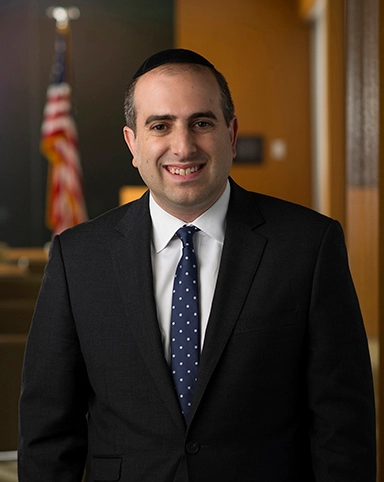“As more companies with IP (and specifically trademark) licenses are forced into chapter 11 as a result of the ongoing pandemic, we expect to see more chapter 11 debtors seek to re-negotiate trademark license agreements, or seek to sell rights related to such agreements, rather than reject the agreements outright.”
 Your company and its business have been built around the strength of a trademark license from a third-party licensor. You have invested heavily in the brand.
Your company and its business have been built around the strength of a trademark license from a third-party licensor. You have invested heavily in the brand.
Now, however, your trademark licensor is in financial distress. Bankruptcy is not beyond the realm of possibility. Perhaps the licensor has asked to renegotiate the terms of the trademark license or threatened to terminate the license once a chapter 11 bankruptcy case is filed. What are the respective rights of the distressed trademark licensor and your company, as trademark licensee, in this situation? Is your company at risk of losing everything invested in reliance on the license?
The Mission Product Ruling
Fortunately, the Supreme Court’s ruling in Mission Product Holdings Inc. v. Tempnology, LLC has made it more difficult for licensors to terminate a trademark license in chapter 11. The Supreme Court ruled in Mission Product that if you hold a trademark license from a Chapter 11 debtor-licensor pursuant to a contractual license agreement, you can continue using such license—subject to the terms of the license agreement—even if the debtor-licensor seeks to reject the underlying agreement in bankruptcy. 139 S. Ct. 1652 (2019).
The United States Bankruptcy Code authorizes a company in chapter 11 (i.e., the “debtor”) to “assume” or “reject” contracts or agreements (known as “executory contracts”), including license agreements, during a bankruptcy case. See 11 U.S.C. § 365.
When a debtor decides to “assume” a license agreement, the debtor makes a determination that the agreement (including the license thereunder) is beneficial to the debtor and, therefore, agrees to continue to perform under such agreement. Under Section 365(b) of the Bankruptcy Code, in order to assume a license agreement, the debtor is required cure prior breaches under the agreement and also provide “adequate assurance” that it will be able to comply with the terms of the agreement for the balance of the license agreement’s term. Following assumption by the debtor, the licensor and licensee remain contractually bound under the license (and related agreement).
Alternatively, a debtor can “reject” the license agreement. Under the Bankruptcy Code, rejection of a license is treated as a material breach (but not termination) of the license agreement. Following rejection of the license, neither party is required to continue to perform in accordance with the terms of the license agreement, except as described below.
The Supreme Court explained in Mission Product that because rejection of a contract in bankruptcy “constitutes a breach”, just as outside of a bankruptcy, a licensor’s breach of a license agreement does not terminate a licensee’s right to use the licensed intellectual property, the same holds true in bankruptcy. Mission Product Holdings, 139 S. Ct. at 1662-63. Therefore, notwithstanding the rejection of a license agreement, “the licensee can continue to do whatever the license authorizes.” Id. at 1663. The Court also noted that a debtor in chapter 11 “cannot possess anything more than the debtor itself did outside of bankruptcy”; therefore, if the debtor outside of bankruptcy had no right to revoke the non-debtor contract counterparty’s license (absent the licensee’s defaults under the license), neither the bankruptcy filing nor section 365 of the Bankruptcy Code expand on such rights. Id.
The non-debtor party has an option to treat license agreement rejection as a termination. If the non-debtor licensee elects to treat the license as terminated, it will then be excused from continuing to perform under the license.
Prior to the Mission Product case, the law was unsettled as to whether a debtor-licensor could reject a trademark license agreement and thereby seek a more lucrative licensee partner or to sell its trademark license to a higher bidder. Some courts had previously treated “rejection” of an executory contract as akin to termination of such contract and the counterparty’s rights (including trademark rights) thereunder. However, the Supreme Court in Mission Product clarified that rejection of an executory contract is akin to breach of such contract outside of bankruptcy.
The Post-Mission Landscape
What are the implications of the debtor licensor’s rejection of the trademark license agreement post-Mission Product? As noted, the Mission Product Court found that rejection of such a license is only deemed a breach but does not terminate the rights of the licensee to the underlying trademark license. As another court has explained, “nothing about this [contract rejection] process implies that any other rights of the other contracting party have been vaporized.” See Sunbeam Products, Inc. v. Chicago American Manufacturing, LLC, 686 F.3rd 372 (7th Cir. 2012). In other words, a debtor’s rejection of a trademark license agreement is a contractual breach of the license, but it is not a termination of the license. The rights a licensee has in the debtor’s trademark following rejection is governed by the terms of the agreement and by non-bankruptcy law. Rejection “merely frees the estate from the obligation to perform and has absolutely no effect upon the contract’s continued existence.”
When a debtor licensor rejects a trademark license agreement, the licensee may have a claim for monetary damages. But, that claim is deemed to be a pre-bankruptcy general unsecured claim (even though rejection occurs after the bankruptcy is filed). Unfortunately, general unsecured claims in bankruptcy cases are typically worth only a fraction of the claim amount.
Upon rejection of a contract, the debtor generally stops performing its obligations under the license agreement. Thus, even though the licensee is authorized to continue use of the trademark, the debtor is relieved of all other obligations under the license agreement, such as the requirement to provide technical and other support. The licensee may also be left with no legal remedy to require the licensor to fulfill such support obligations.
If the failure to continue to support the trademark license under a rejected agreement is a material breach of the license agreement, the licensee has the option of either ceasing its performance under the license agreement and/or retaining the continued use of the trademark under the license (as the license existed immediately prior to the breach) and fending for itself.
The Supreme Court’s decision in Mission Product increases the negotiating leverage of a trademark licensee, since a debtor-licensor is unable to deem the rejection of a license agreement as revocation of the underlying license, even in chapter 11. However, the licensee’s ability to continue its use of the trademark without the debtor’s oversight as to quality control may result in diminution in the value of the trademark to the licensor. As a result, insolvent licensors may be better served by negotiating either an outright sale of the trademark to the licensee or else a mutual termination of the license. As more companies with IP (and specifically trademark) licenses are forced into chapter 11 as a result of the ongoing pandemic, we expect to see more chapter 11 debtors seek to re-negotiate trademark license agreements, or seek to sell rights related to such agreements, rather than reject the agreements outright, given that rejection will not eviscerate a trademark license previously granted (as some courts have previously held). Rejection may do no more than relieve a debtor of burdensome obligations related to an underlying trademark license agreement, but that does not generate needed cash for a debtor.
Key Tips for Licensees
What should a trademark licensee to do in order to best protect itself? To start, a licensee should monitor the financial health of its trademark licensor. When negotiating the license initially, it should anticipate the consequences of rejection by the licensor and negotiate specific terms in order to best mitigate the consequences of rejection. Matters to be addressed include quality control, product approval, promotion and the right to offset damages. The parties also can negotiate provisions for liquidated damages.
As noted, in the event of a bankruptcy proceeding commenced by the licensor, the debtor’s assets often are sold to third parties. Licensees should monitor any sale process and communicate with prospective purchasers of the trademarks and related trademark license agreements (any prudent purchaser conducting due diligence will certainly want to speak with the trademark licensees). Whether or not a sale is occurring or the debtor is attempting to reorganize, the trademark licensee should also communicate directly with the debtor regarding potential mutually beneficial modifications to the license agreement. Closely monitoring the bankruptcy case, including any chapter 11 sale process, is critical in order to assure that the licensee’s rights are not inappropriately abridged or impacted through the bankruptcy process, including any orders entered by the bankruptcy court that could end up binding on the licensee due to the licensee’s failure to object to certain relief granted by the court. Finally, licensees may also want to consider purchasing the trademark (and any related rights under the trademark license agreement) in the event of the licensor’s insolvency or bankruptcy.
Image Source: Deposit Photos
Image ID:6679303
Copyright:Xalanx

![[IPWatchdog Logo]](https://ipwatchdog.com/wp-content/themes/IPWatchdog%20-%202023/assets/images/temp/logo-small@2x.png)


![[Advertisement]](https://ipwatchdog.com/wp-content/uploads/2024/04/Artificial-Intelligence-2024-REPLAY-sidebar-700x500-corrected.jpg)
![[Advertisement]](https://ipwatchdog.com/wp-content/uploads/2024/04/UnitedLex-May-2-2024-sidebar-700x500-1.jpg)
![[Advertisement]](https://ipwatchdog.com/wp-content/uploads/2024/04/Patent-Litigation-Masters-2024-sidebar-700x500-1.jpg)

![[Advertisement]](https://ipwatchdog.com/wp-content/uploads/2021/12/WEBINAR-336-x-280-px.png)
![[Advertisement]](https://ipwatchdog.com/wp-content/uploads/2021/12/2021-Patent-Practice-on-Demand-recorded-Feb-2021-336-x-280.jpg)
![[Advertisement]](https://ipwatchdog.com/wp-content/uploads/2021/12/Ad-4-The-Invent-Patent-System™.png)






Join the Discussion
10 comments so far.